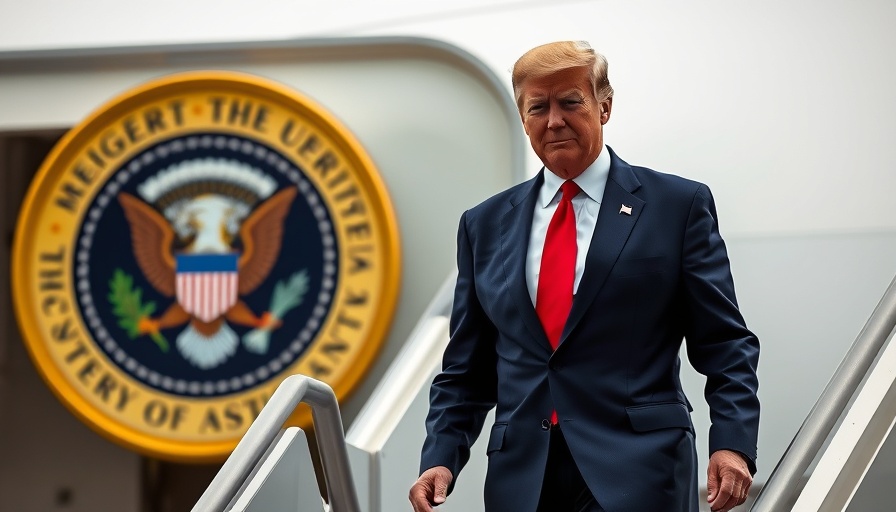
Trump's Tariffs: A Continuation Amid Legal Uncertainty
In a recent ruling, a federal appeals court has allowed the Trump administration to continue collecting tariffs, even as legal challenges linger. This decision raises significant implications not only for trade relations but also for businesses that rely on international markets. The court's ruling underscores the complexity of the U.S. trade war, wherein tariffs have been a pivotal tool for the administration to advance its economic agenda.
The Impact of Tariffs on the Business Landscape
For business professionals, the continuation of these tariffs presents both challenges and opportunities. On one hand, companies that rely heavily on imports may face increased costs, which could erode profit margins. This scenario may prompt some organizations to explore new suppliers domestically or in countries less affected by tariffs, highlighting the evolving landscape of global trade. Alternatively, local businesses could benefit from reduced foreign competition, allowing them to expand their market share.
Historical Context: Tariffs in American Trade Policy
Historically, tariffs have been used by the United States to protect domestic industries. This modern iteration, however, reflects a more aggressive posture in trade negotiations. Understanding the historical context is invaluable for professionals in the Bay Area, as many Silicon Valley startups and local enterprises are impacted by these policies. The ongoing trade dynamics shape industry trends and can influence strategic decision-making across various sectors.
Potential Economic Consequences
The ruling comes against a backdrop of constantly shifting economic forecasts, raising questions about long-term business strategies, especially in technology and commercial development. Entrepreneurs must remain adaptable, exploring innovations in sustainability and green business practices to stay competitive. Insights into economic patterns and employment trends will also be crucial as they navigate the implications of these tariffs.
Next Steps for Businesses
In light of the court ruling, businesses should closely monitor regulatory updates regarding tariffs and trade policies. Engaging in risk assessment and adapting to changing market conditions will be essential. It could benefit companies to investigate venture capital opportunities, as innovation continues to thrive, particularly within the tech sector focused on e-commerce and sustainability.
Ultimately, understanding the legal, economic, and strategic ramifications of such rulings can empower professionals to make informed decisions. Business leaders should proactively explore collaborations and partnerships that enhance resilience amid uncertainties in trade policy.
 Add Row
Add Row  Add
Add 



Write A Comment